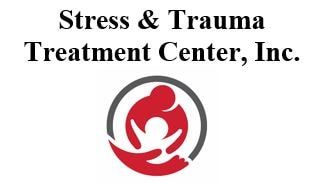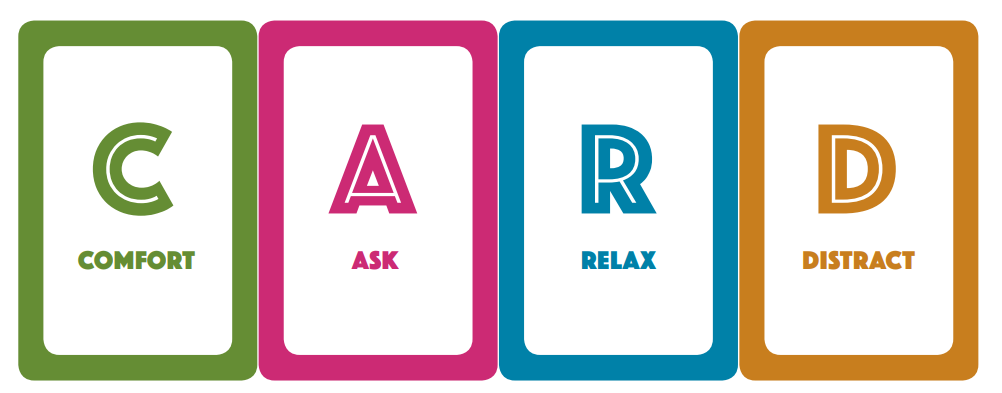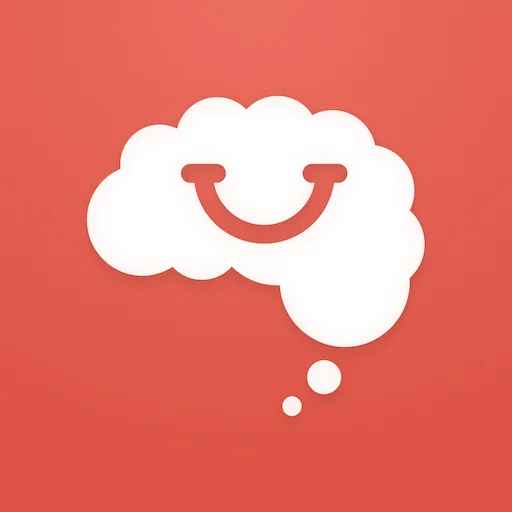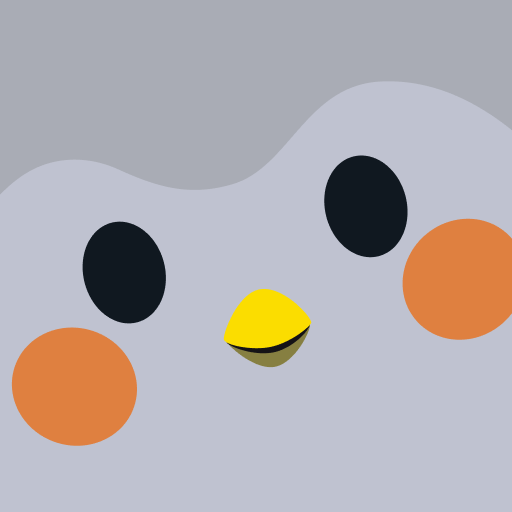What is anxiety?Anxiety is a feeling of fear, dread, and overall uneasiness - it's completely normal and natural in small doses, but can be problematic long-term. Everyone feels anxious before a big test, public speaking, when their loved ones are sick, when they're in dangerous situations, or just generally "stressed out" - anxiety causes our bodies to go into "fight or flight" mode to help us. On the other hand, intense or long-term anxiety can cause both major physical and mental issues. A lot of people compare anxiety to a smoke alarm, because while smoke alarms can save your life when used correctly, having a smoke alarm always blaring in the background isn't helpful.
Relevant anxiety hotlines include:
|
Some symptoms of anxiety are:
Not everyone with anxiety will experience all of these symptoms - some people may experience a couple a LOT and others not at all. While there's nothing inherently wrong with experiencing anxiety or these symptoms, anxiety is a problem when it affects your day-to-day life, like if you avoid going down a specific hallway at school because you know you'll get anxious.
There's four major ways anxiety tends to manifest:
- Feeling nervous, restless, or tense
- Having a sense of impending doom, panic, or danger
- Having an increased heart rate
- Hyperventilating or breathing rapidly
- Sweating
- Headaches
- Muscle tension
- Trembling
- Feeling weak and/or tired
- Trouble concentrating or thinking about things other than what you're worried about
- Having trouble sleeping
- Stomach problems or change in appetite
- Difficulty controlling worry or feeling like your worry is out of proportion
- Having the urge to avoid things that trigger anxiety
Not everyone with anxiety will experience all of these symptoms - some people may experience a couple a LOT and others not at all. While there's nothing inherently wrong with experiencing anxiety or these symptoms, anxiety is a problem when it affects your day-to-day life, like if you avoid going down a specific hallway at school because you know you'll get anxious.
There's four major ways anxiety tends to manifest:
- Generalized anxiety, where you feel a little bit too anxious all the time. It's persistent and excessive anxiety/worry that's out of proportion to actual events and happen with or without a trigger.
- Panic attacks, where you feel massive spikes of anxiety, fear, and/or terror in small minutes-long episodes. Most people think they're actually dying when they experience a panic attack for the first time.
- Social anxiety, where you feel anxiety around social situations due to feeling embarrassed, self-conscious, or fear you'll be judged.
- Phobias, where you experience major anxiety when exposed to specific objects and/or situations, also known as triggers. Common phobias include heights, spiders, and snakes - phobias can also provoke panic attacks if you're already prone to them.
How do you treat anxiety?There are a lot of different ways to help lower and treat anxiety, depending on what causes your anxiety and how it affects you. Treating generalized anxiety will look different compared to treating phobias and vice versa. Remember your mileage may vary and you should try things until you find what works best for you.
TECHNIQUES Mindfulness, which is great for generalized anxiety. Mindfulness is a process where you pay attention to your physical surroundings and "ground yourself," which can be helpful with anxiety because it distracts you from your stressor/trigger. Try taking a few moments while you're walking, driving, or watching TV - do you feel cool or warm? What things can you smell? What sounds can you hear? How does your body feel? Let your mind wander on physical stuff. Progressive Muscle Relaxation, or PMR is good for panic attacks and trigger-based anxiety like phobias and social anxiety. During PMR, you systematically tense your muscles (like your hand or legs) for about 5-second intervals and then release them. It's more hands-on compared to traditional mindfulness and helps if you really need to chill during high stress. |
Take a breath.Anxious or stressed? Take a moment with this exercise.
|
|
Breathing Exercises is great for panic attacks, when done correctly. You don't want to hyperventilate, but learning good breathing exercises can break out of a panic attack. Our built-in breathing feature lets you customize what breathing exercise you want to do - some common ones are 4-6 (for stress), 4-2-6 (for anxiety), 4-4-4-4/square (for focus), 6-2 (for energy), and 4-7-8 (for sleep).
CARD is an acronym for a basic framework meant to lower your stress and anxiety, but there's plenty of others out there. They're great for panic attacks, phobias, and high-level trigger-based anxiety. CARD stands for Comfort (Get comfortable! Go get your favorite snack, put on some comfy clothes!), Ask (Be curious - if you're anxious because you don't know something, so finding out answers can help!) Relax (Chill out! Do some breathing exercises, mindfulness, or another activity to lower your overall stress) and Distract (Think about something else - focusing on your trigger will only make your anxiety worse, so talk to someone, play a video game, watch a YouTube video!). A good way to use CARD and other similar systems is to visualize them as templates - make a plan using CARD with set tasks for each letter so you have a game plan for the next time you're stressed. This can look like:
|
Exposure, which is great for phobias and social anxiety. If you experience high stress because of specific triggers like heights, needles, or crowds, exposure is often the best way to go. It's not easy - you have to regularly and intentionally increase your exposure or time around what makes you anxious. The point of exposure is NOT to be full-on stressed, but just a little or as uncomfortable as you can be to a manageable level because avoiding your trigger entirely/not being uncomfortable won't create progress.
Lifestyle Adjustments is used for generalized anxiety and is made up of changes to your diet, physical exercise routine, and learning to build self-esteem. Poor diet can lead to anxiety - too much nicotine, caffeine, and stimulants and not enough vitamin B and calcium can increase anxiety. Physical exercise is also good for managing stress because it regulates your body's natural hormones.
Therapy is great for all types of anxiety and other mental health issues. Seeking professional help will make any of the other above included techniques more streamlined and usually keeps people more accountable for taking care of their mental health. You'll generally find either cognitive-based or behavioral-based therapy, which means your counselor and program will either focus on changing your thoughts or physical behaviors to manage anxiety. You can also find groups to lower anxiety, as long as you're not actively experiencing high social anxiety.
Medications can be prescribed if therapy and the other options aren't working or doable for you. Consider talking to your primary care doctor about medication to manage your anxiety - there are plenty of options out there that may work.
Lifestyle Adjustments is used for generalized anxiety and is made up of changes to your diet, physical exercise routine, and learning to build self-esteem. Poor diet can lead to anxiety - too much nicotine, caffeine, and stimulants and not enough vitamin B and calcium can increase anxiety. Physical exercise is also good for managing stress because it regulates your body's natural hormones.
Therapy is great for all types of anxiety and other mental health issues. Seeking professional help will make any of the other above included techniques more streamlined and usually keeps people more accountable for taking care of their mental health. You'll generally find either cognitive-based or behavioral-based therapy, which means your counselor and program will either focus on changing your thoughts or physical behaviors to manage anxiety. You can also find groups to lower anxiety, as long as you're not actively experiencing high social anxiety.
Medications can be prescribed if therapy and the other options aren't working or doable for you. Consider talking to your primary care doctor about medication to manage your anxiety - there are plenty of options out there that may work.











